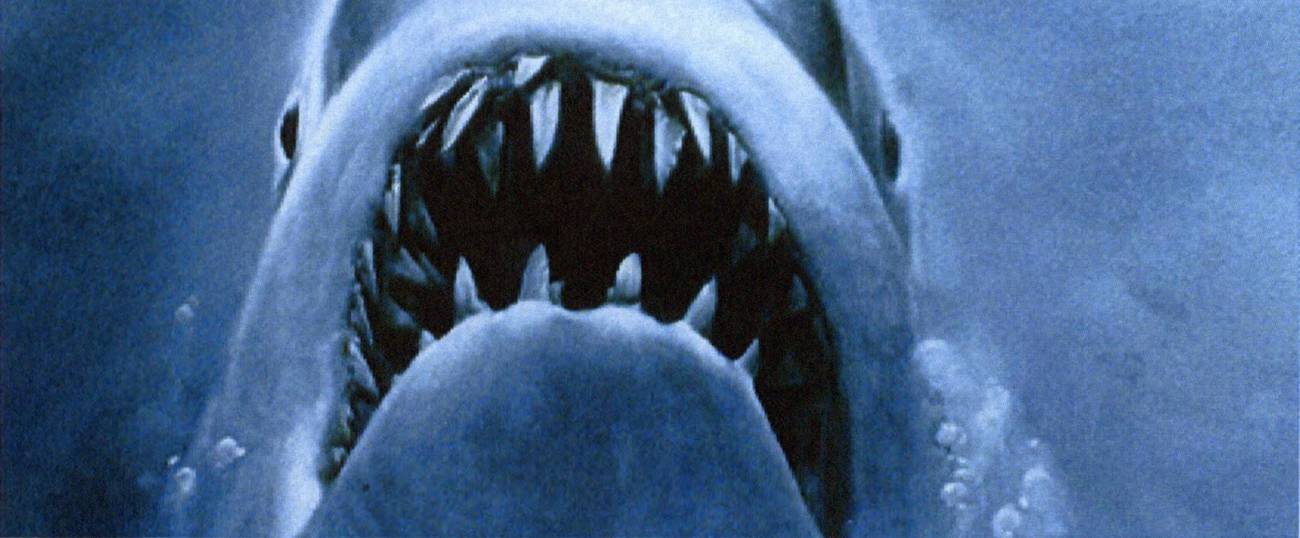Happy J Day, a New Holiday of Jewish Insecurity
The J stands for ‘Jaws,’ which takes place largely on July 5th and is about fighting back against anything that tries to eat you




This piece was originally published on July 5, 2017:
You may not know it, but today is an important Jewish holiday. Maybe important isn’t the right word—after all, I just made it up. But it’s certainly the holiday we need right now, a celebration of our anxieties that culminates in a call to arms. To all, then, a very happy J Day.
The J stands for Jaws, which, as you probably know by now, is about a Great White shark with an attitude and an appetite. He pops up off the coast of Massachusetts’s unimprovably named Amity Island on the eve on July 3rd, grabs a bite, and decides to stay for the holiday. On the 4th, he feasts on a boater, and nearly devours the son of the local sheriff. On the 5th, the sheriff, along with the unlikeliest of posses, fights back.
Because the movie was directed by Steven Spielberg, as good a barometer of the emotional tremors of American Jews as we’ve had in the last fifty years, it’s tempting to see the shark as metaphor. Like that other great white oceanic predator to devour American culture, Melville’s whale, Spielberg’s toothsome menace is terrifying mainly because it is a reminder that destruction is never too far from the surface. Its very whiteness suggests an absence of life, an indefiniteness that, as Melville so neatly put it, “shadows forth the heartless voids and immensities of the universe, and thus stabs us from behind with the thought of annihilation.”
To many of us American Jews, America these days feels like Amity Island. Suddenly, and for reasons we can’t quite explain, something has emerged from the water and is trying to eat us. You can see the tip of its fin every time a Jew is asked to take down that Star of David at the gay pride march, say, or told that she can’t be both a Zionist and a feminist, or singled out by menacing notes at an elite university. Some of us choose to disregard these signs and argue that they’re just disparate events and not harbingers of some deeper menace. But as the signs grow more frequent and the signalers more prominent, it’s time we acknowledge what so many of us feel: the old anxieties, the ones we had hoped were nothing more than irrational vestiges of past traumas, are back with a vengeance.
No one understands this better than Spielberg himself. The world, he warned Harvard’s Class of 2016, was full of monsters, chief among them anti-Semitism. “As a kid,” Spielberg said, “I was bullied—for being Jewish. This was upsetting, but compared to what my parents and grandparents had faced, it felt tame. Because we truly believed that anti-Semitism was fading. And we were wrong.”
Which is why the new holiday is necessary. It serves two functions. First, it is an occasion for us to admit what, until recently, seemed inconceivable, the sort of belief held exclusively by shouty elders who had grown too sour to embrace the new age of harmony and progress. On J Day, we can now stop and admit, to each other and to ourselves, just how horrifying it is to witness Jew hatred once again precipitously on the rise.
But, being a Jewish holiday, J Day must be not only about defeat but about defiance as well. This is why we ought to commemorate it on July 5th, the day a small band of Americans—including the quintessentially Jewish Richard Dreyfuss, who had grown up convinced he was a relation of that other Dreyfus, Captain Alfred—set out to fight back. While Amity Island’s mayor, like too many of our contemporary leaders, refused to let a little bloodletting get in the way of business as usual, a troika of clearsighted and morally sound Americans set out to fight the beast. They succeed, at a price, bequeathing to us the belief that when something primordial and mindlessly violent pops up and starts to chomp, you shouldn’t try to reason with it or analyze its motives or examine what about your own behavior might’ve made you a target: The only decent thing to do is fight back until the predator is no more.
Let this be a lesson to us all. And to all, a very happy J Day.
Liel Leibovitz is editor-at-large for Tablet Magazine and a host of its weekly culture podcast Unorthodox and daily Talmud podcast Take One. He is the editor of Zionism: The Tablet Guide.